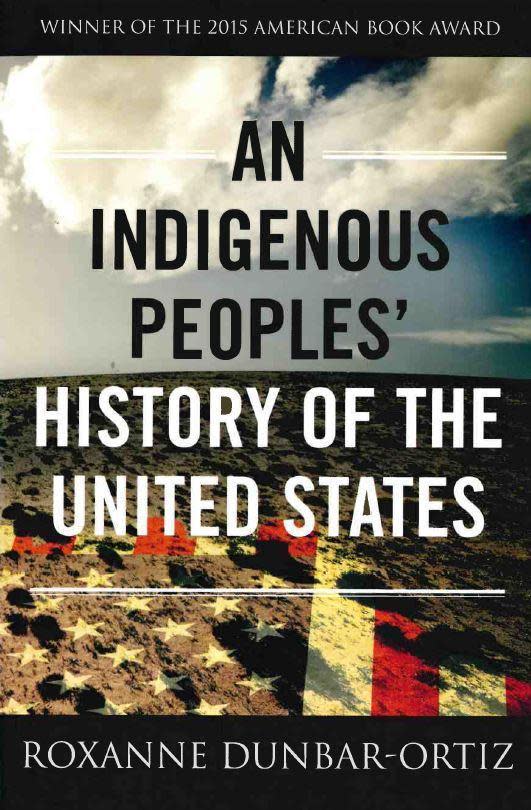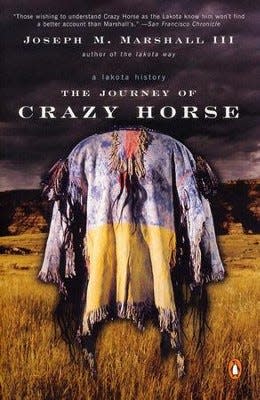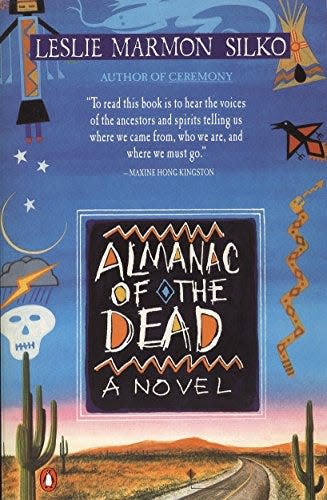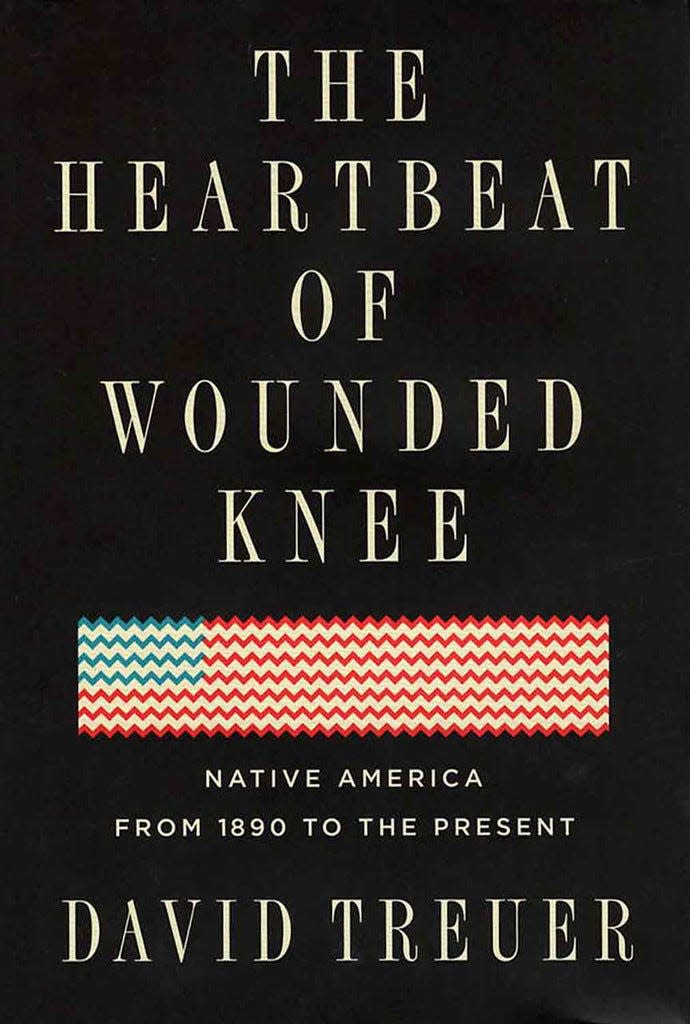BookLovers: It’s Indigenous People’s Day, read their stories.
“1492. As children, we were taught to memorize this year with pride and joy as the year people began living full and imaginative lives on the continent of North America. Actually, people had been living full and imaginative lives on the continent of North America for hundreds of years before that. 1492 was simply the year sea pirates began to rob, cheat, and kill them.” — Kurt Vonnegut
Monday is Indigenous People’s Day, and while you can and should read this selection of books below any time of year, I want to highlight a few today.
Because, to state the obvious: American kids were, likely still are, reared on partial histories, written by and about white men, oppressors, and invaders.
There are those who are silenced and those who carve their story in stone.
Like Bob Dylan sang: “Oh the history books tell it, They tell it so well, The cavalries charged, The Indians fell. The cavalries charged, the Indians died. The country was young, With God on its side.”
(And it wasn’t even India. No eraser, I guess, for those old history books.)
You can, of course, read any number of non-fiction books about the devastation, the sick cruelties colonists wrought upon indigenous peoples. You can read that truth in novels, too.
You can and should educate yourself whether or not it’s a holiday. This is human history, after all, and no one minority group deserves to be pigeonholed into one day or month.
I want to point out that this is by no means a comprehensive list of good indigenous books — that would be like saying “Here’s a list of every good book by a person from Norway” or “This is every good book by a left-handed person.” That would be impossible, pointless, serving only to isolate.
This is a list of stories to think about, books, and voices I’d like to highlight on a holiday that's as good a time as any to think about who writes the history books that tell us so well.
NONFICTION

“An Indigenous Peoples' History of the United States,” by Roxanne Dunbar-Ortiz. This was a recipient of the American Book Award and New York Times bestseller.
Ortiz is a font of information with books, including her “All the Real Indians Died Off": And 20 Other Myths About Native Americans (Myths Made in America)," co-authored with Dina Gilio-Whitaker.

"The Journey of Crazy Horse: A Lakota History," by Joseph M. Marshall III. According to the publisher, Marshall was raised on the Rosebud Sioux Indian Reservation and his first language is Lakota. Marshall is a recipient of the Wyoming Humanities Award. He makes his home on the Northern Plains.
Marshall is another font of knowledge. Another recommendation: "The Lakota Way: Stories and Lessons for Living,” his finalist for the PEN Center USA West Award in 2002.

"Almanac of the Dead," by Leslie Marmon Silko, who grew up on the Laguna Pueblo Reservation.

“The Heartbeat of Wounded Knee: Native America from 1890 to the Present,” by David Treuer. A National Book Award Finalist from Treuer, an Ojibwe from the Leech Lake Reservation in northern Minnesota. His novels are also must-reads.
NOVELS
I’m already out of room, but I want to quickly mention here some novels to get you started:
“There, There,” by Tommy Orange
“Apple: (Skin to the Core),” by Eric Gansworth (YA)
“The Absolutely True Diary of a Part-Time Indian,” by Sherman Alexie (middle-grades to adult)
“Night of the Living Rez,” by Morgan Talty (short stories.)
“Firekeeper's Daughter,” by Angeline Boulley
“Elatsoe,” by Darcie Little Badger, illustrated Rovina Cai (middle-reader to adult)
“A Snake Falls to Earth,” also by Darcie Little Badger
Lauren Daley is a book columnist and freelance writer. Contact her at ldaley33@gmail.com. She tweets @laurendaley1. Read more at https://www.facebook.com/daley.writer
This article originally appeared on Standard-Times: BookLovers: Books to read on Indigenous People’s Day

